Partner with LSCRE’s Preferred Equity
Preferred equity can help sponsors maximize returns, reduce equity requirements, and close more deals by providing a flexible capital solution alongside senior lending.

Preferred equity is a powerful source of capital for sponsors looking to maximize returns and get more deals done. If you’re unfamiliar with preferred equity, it is a form of equity financing which earns a fixed rate of return and sits senior in the equity partnership, subordinate only to the senior loan. Preferred equity provides sponsors access to flexible, supplemental capital above and beyond what senior lenders are willing to loan in order to optimize returns and reduce the deal’s equity requirement. Preferred equity can be utilized for a new acquisition or a recapitalization, which can often be more favorable than a sale of the asset before realizing its full potential. LSCRE has a background as an owner-operator and therefore understands the needs of sponsors seeking preferred equity and can better tailor terms based on the investment goals and business plan.
Preferred equity often optimizes a capital structure by bifurcating the equity portion into two better matched risk/return profiles. Preferred equity favors downside protection and certainty of return and is therefore willing to accept a lower return, leaving more upside for the common equity. Common equity is more interested in upside potential and reaping the rewards of the successful implementation of the business plan as well as appreciation. Splitting the risk/reward of the deal creates a win-win scenario where investors with varying goals can work together.
Let’s use some hypothetical numbers to highlight the return maximization through preferred equity financing.
· $10,000,000 purchase price / $1,000,000 capex budget (value-add plan which raises rents $150)
· 75% LTV debt ($7,500,000) at 3.25% which results in an equity requirement of just over $4,000,000 and a 3-year IRR of 18.4%, indicating there is strong upside in the project
· However, with preferred equity which funds up to 85% LTC (purchase price plus capex, or $11,000,000 in our example), returns can be greatly amplified on both a cash on cash basis as well as IRR. In this example, preferred equity funds $1,850,000 ($11,000,000 * 85% – $7,500,000), thus reducing the equity requirement to around $2,000,000, making the raise much more manageable for the sponsor.
· Preferred equity provides a flexible solution by receiving 8% annual returns via monthly cash flow and receives the rest of its return (6%) upon sale, for a total annualized return of 14%. By only receiving 8% on cash flow, the common equity gets the benefit of all excess cash flows, resulting in 3-year average cash-on-cash jumping from 10.5% to 12.5%. Similarly, the common equity’s IRR jumps up from 18.4% to 21.9% due to it receiving all of the profits upon sale after paying the preferred equity its 6% accrual.
· In this example, risk/reward are appropriately divvied up by giving the preferred equity 14% returns with lower risk while allowing the common equity to take more risk in order to achieve 22% returns.
The above example does a good job of illustrating the upside potential of partnering with a preferred equity provider, allowing the sponsor and its investors to maximize returns. Briefly mentioned in the example was the reduction in equity requirement from $4,000,000 to $2,000,000. Reducing the amount of capital sponsors need to raise is another highly compelling feature of preferred equity because it allows sponsors to worry less about their capital raise and get more deals done with its existing pool of investors. This feature can be particularly helpful to emerging sponsors who have yet to establish many investor relationships and thus are limited by how much capital they can raise.
Additionally, newer sponsors can leverage a more experienced team such as LSCRE to both provide preferred equity to the deal as well as co-sign the senior loan in order to qualify for the lender’s experience, net worth, and liquidity requirements. Lastly, a preferred equity partner can be used to help pitch the buyer team to a seller in a competitive bidding process. In sum, a preferred equity provider can be an extremely valuable partner for a sponsor looking to maximize returns and close more deals. Click here to learn more about LSCRE’s Preferred Equity Platform or reach out to me directly at rob@lonestarcapgroup.com.
